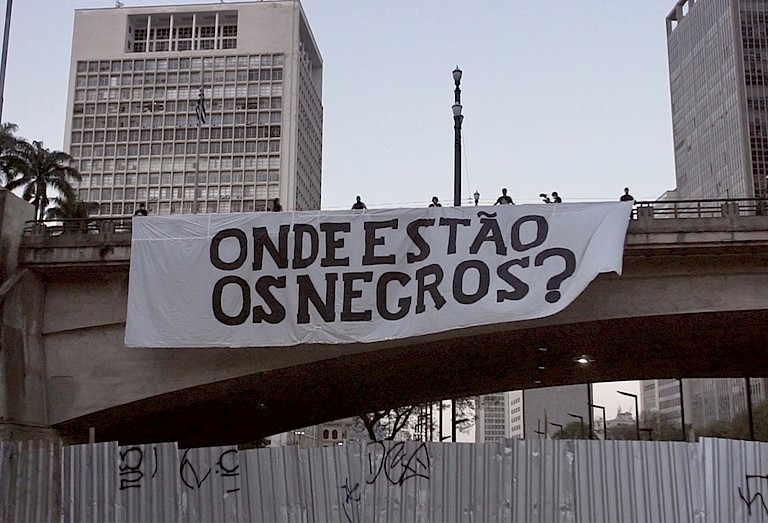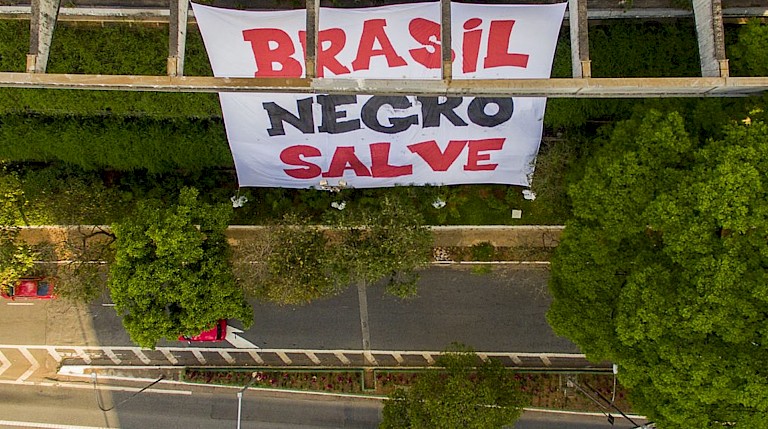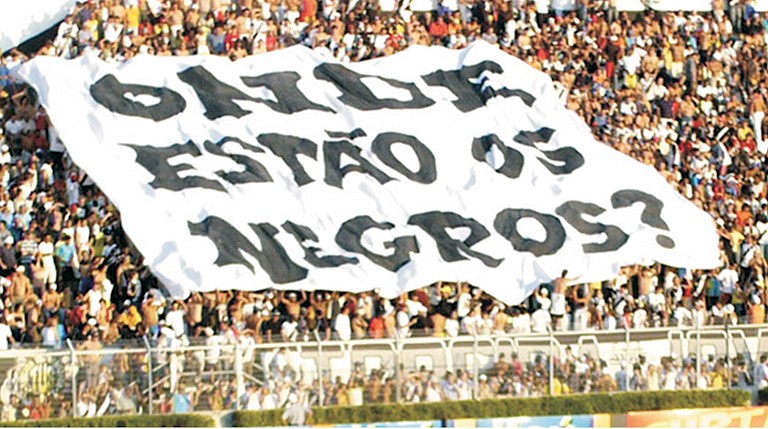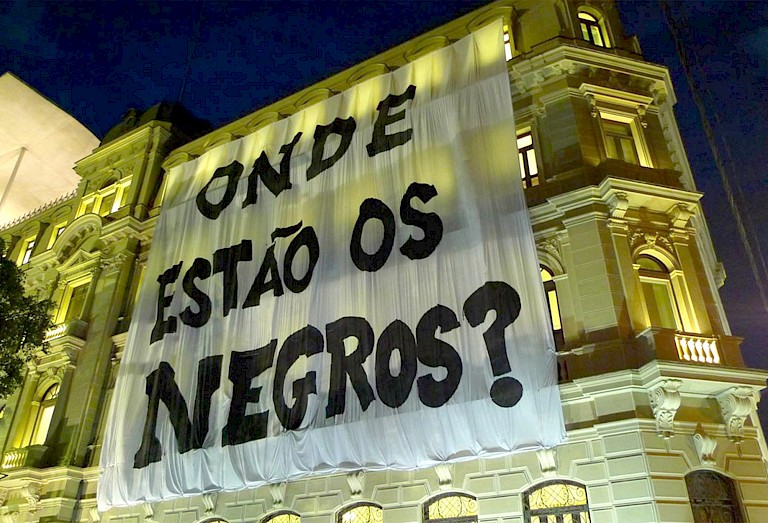



The Frente 3 de Fevereiro has broken down a historical thread that "naturally" is updated in new social practices, seeking to understand how these practices are structured, from the borders of slavery heritages intertwined in everyday human experience, from the possibility of breaking the slavery logic to inscribe other forms of sociability. The actions of this group collaborate with resistance niches and their strategies in an attempt to convert the discriminatory social violence into a symbolic resistance for the sake of the community, reinventing the ways of living in social practice.
The work reflects social conditions pointed out since 2004, but dialogues with history and the most recent moments of racism, mainly in Brazil, but it is completely possible to relate it to other countries where the African diaspora for enslavement, including the United States, where there have also been great debates about racism and police violence rooted in this pretext.
Historically speaking, the figure of Zumbi dos Palmares is important and crucial in the fight against slavery. It is usually talked about in schools, but in a superficial way, giving a villainous character to it. But with the advance of recognition of black identity in Brazil, this character is rescued and given due recognition, which is reflected in the phrase “Zumbi Somos Nós” (Zumbi is us), since Zumbi, enslaved, managed to escape and be the leader of an area where other slaves took refuge after their escape. Creating a place of community, resistance and confrontation, called “Quilombo”.
Another issue is also to think about the place where blacks occupy in society. In a country where more than 50% of the population considers themselves black, places of power, media, entertainment and aesthetic reference are mostly occupied by whites. And with police violence, the news is where the black is seen, in an unfair and stereotyped way, for the most part.
With that, we return to the problem of police violence, where many civilians are murdered in the midst of police operations, which, during an all-out disorderly war on drugs, carry out truculent operations in the favelas, without distinguishing who is or is not involved in drug trafficking. . Taking the lives of innocent people. That when denounced, unfortunately happens in a stereotyped way. Just putting everyone on the same label, minimizing the problems generated by the police instead of debating the urgent need for reform in the police structure.
With all these surveys, it is possible to reflect on the issues raised during the study of this work. It is a project that not only reflects the history and contemporary society but also invites questioning in the midst of one of the greatest passions of Brazilians: football. That it has always been understood as a democratic, accessible sport and that its consumption as entertainment also involves the same characteristics. However, episodes of racism in this environment end up serving as a metaphor to understand the Brazilian reality, always assimilated as a "racial democracy" thanks to the process of miscegenation throughout its history, but which served to hide racial problems that have always existed, but which they are refused to be questioned and debated.
In this direction, the Frente group has opened multiple discussions using various supports to discuss the issue of black people and the social, political and economic implications arising from sociocultural representations and moral standards that result in discrimination and social devaluation in Brazil and also in the outdoors. His works are aimed at a broader perspective and reflections than what his tracks and actions reveal.



